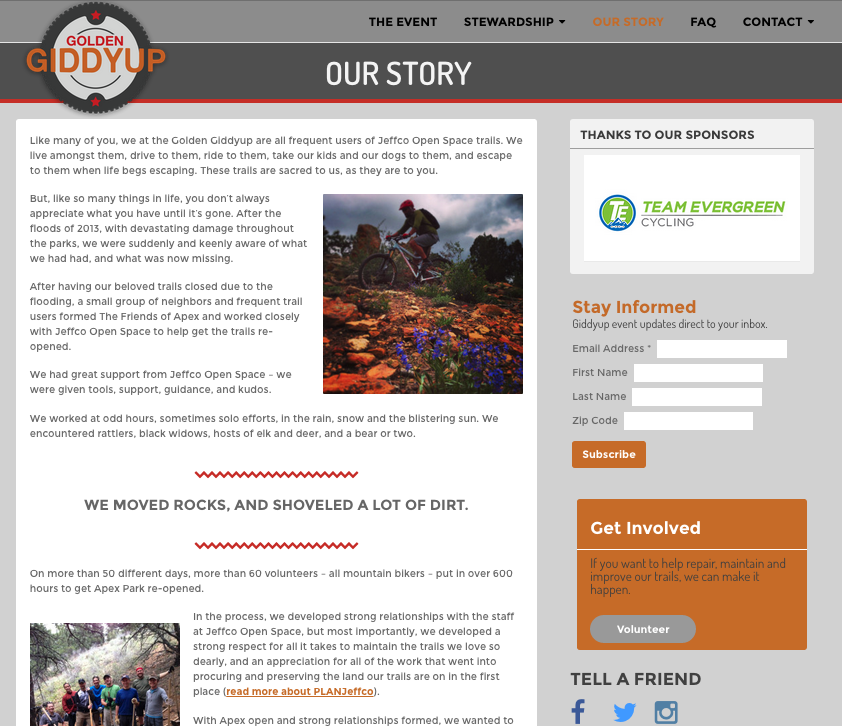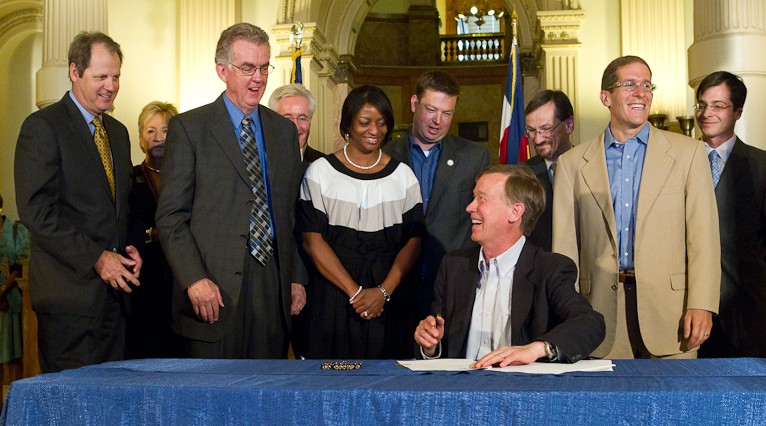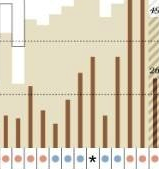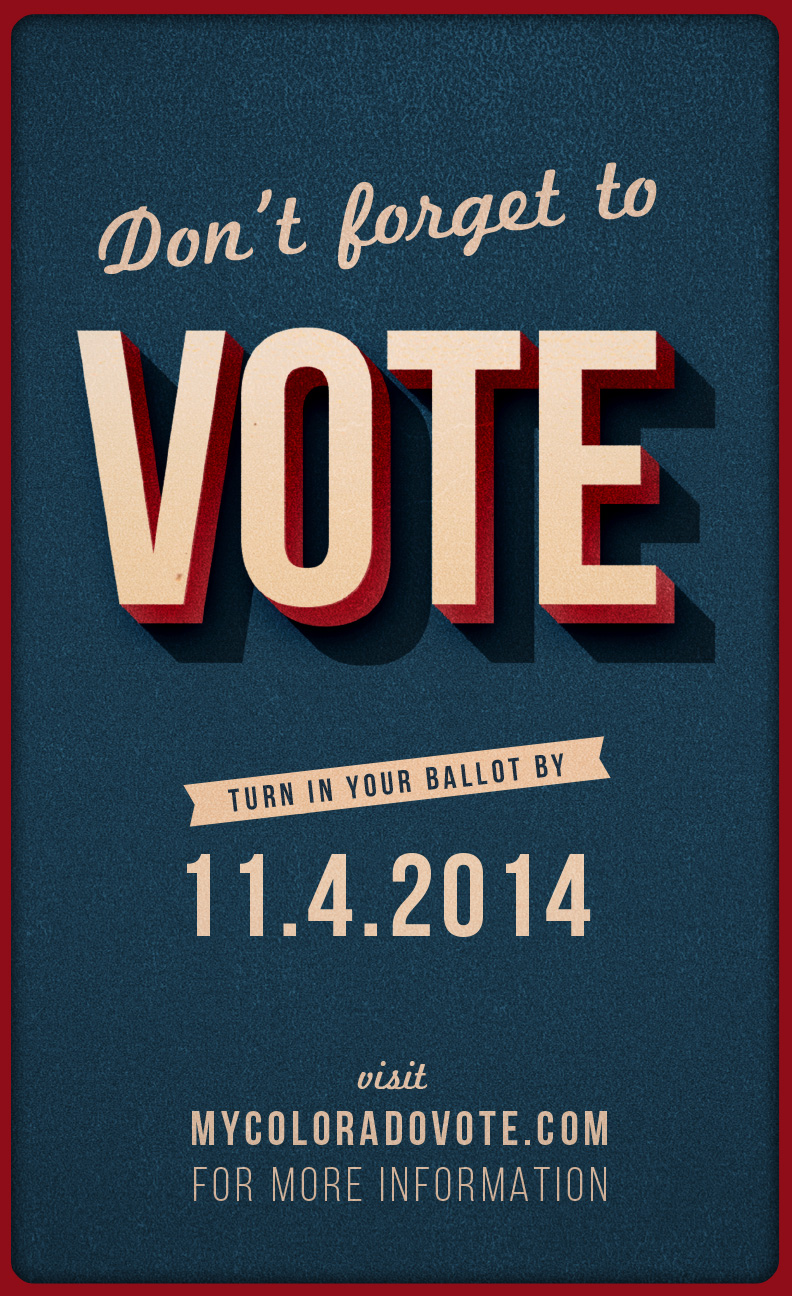
by OnSight | Aug 2012 | politics
Obama leads Colorado in first poll since Romney announced Ryan pick
Live interview survey shows Obama has significant advantage among women and unaffiliated voters.
DENVER _ President Barack Obama holds a four-point lead over GOP challenger Mitt Romney in the first poll of Colorado voters since U.S Rep. Paul Ryan joined the Romney ticket.
Obama leads with 48 percent to Romney’s 44 percent in the first of a series of live-interview tracking polls to be released by Keating Research, Inc. and Onsight Public Affairs leading up to the November election.

There is no doubt that the Presidential race in Colorado will depend on voter turnout.
“Clearly, Romney’s choice of Ryan as his running mate has not provided an impact on the Presidential race in Colorado,” said Chris Keating, who is regarded as one of the most accurate pollsters in the West. “But this is a close race that remains just within the margin of error. There is no doubt that the Presidential race in Colorado will depend on voter turnout.”
Obama’s advantage in Colorado is due largely to a strong showing among women and Hispanic voters. The President leads Romney 51 percent to 41 percent among women, and that lead balloons to 15 points among younger women. And Hispanic voters break more than two to one for Obama with 65 percent favoring the President while just 32 percent favor Romney.
Romney claimed an advantage among Colorado men with 48 percent to Obama’s 45 percent. He maintains a one-point lead among whites with 47 percent.
Both candidates have successfully solidified their bases with 90 percent of Democrats favoring Obama and 87 percent of Republicans favoring Romney. But Obama is currently winning key unaffiliated voters with 50 percent favoring him compared to 36 percent favoring Romney.
“As we saw in the 2008 Presidential race, unaffiliated voters in Colorado are often the deciding factor in close races because they represent nearly one-third of voters statewide,” Keating said.
The poll is based on 500 live telephone interviews conducted August 21-22 among likely November 2012 voters in Colorado. For this sample of 500 interviews, the worst case margin of error at the 95% level is plus or minus 4.4 percent. Respondents were chosen at random from a list of voters with phone numbers, including cell phones.
Read the poll.
Press roundup:

by OnSight | Jun 2012 | Personnel, politics
A proposal to reform the way the state of Colorado manages hiring has been moving through the works. The reform measure — which will be presented to voters as a referendum this fall — was just signed by the Governor on Tuesday.
From the Denver Post:

Governor Hickenlooper signs personnel reform bill (photo from Denver Post)
Gov. John Hickenlooper signed the proposal to revise personnel regulations on Wednesday. The governor’s signature is the last step before the changes go to voters.
Many of the protections are in the state constitution and therefore require a public vote to change.
The new rules would revise how state employees are hired and get rid of a little-used rule that protects senior employees over younger employees in case of layoffs. The measure would also revise merit-pay provisions that workers complain haven’t worked as promised.
The state’s largest public-employee union is neutral on the changes.
Read more: Hickenlooper signs Colo. state employee bill

by OnSight | May 2012 | Graphics, politics

Click to embiggen
Cool graph illustrating the rise of the filibuster in Congress in the last 100 years. A curious quirk of our legislative process, as it turns out.
Part of series of fascinating political (and a myriad of other random) infographics from ILoveCharts.

by OnSight | Feb 2012 | politics, Trends, Web Communications

Getting different constituent databases to talk to each other is harder than tracking down the mythical unicorn of the sea.
There’s some pretty interesting and innovative stuff helping marketers and media managers get messages to the right audiences.
First, a story on the Obama re-election team’s Project Narwhal. As anyone who has worked at a non-profit or corporation that maintains databases (e.g., every organization and non-profit, everywhere) knows, getting all your customer or constituent information all in one place is a difficult and evasive task. Different systems track payments, donations, volunteer actions, inquiries, help requests, and demographic data. Getting all that information in single, consolidated, user-friendly system is neigh impossible – different individuals – even different departments – have ownership of that data, and they’re not always willing (or even able) to share.
From the article:
Even as the outside world marveled at their technical prowess, Obama campaign staffers were exasperated at what seemed like a basic system failure: They had records on 170 million potential voters, 13 million online supporters, 3 million campaign donors and at least as many volunteers—but no way of knowing who among them were the same people.
But Project Narwhal attempts to tackle this disconnect and create the mythical sea unicorn of voter databases:
Narwhal would bring new efficiency across the campaign’s operations. No longer will canvassers be dispatched to knock on the doors of people who have already volunteered to support Obama. And if a donor has given the maximum $2,500 in permitted contributions, emails will stop hitting him up for money and start asking him to volunteer instead. Those familiar with Narwhal’s development say the completion of such a technical infrastructure would also be a gift to future Democratic candidates who have struggled to organize political data that has been often arbitrarily siloed depending on which software vendor had primacy at a given moment.
Good news for all our friends holding office and running campaigns, for certain, not to mention a great way for voters themselves to be kept up to speed on specifically the issues they care most about.
In related news, a new billboard in the UK is using facial recognition technology to determine your gender, and then changes the content of the ad itself depending on who it thinks you are:
Women who walk up to the billboard, which is located at a London bus stop and will be viewable for two weeks, are greeted with a 40-second film explaining the plight of women and girls in poor countries around the world, who often are denied eduction and opportunities that are afforded to men.
Men, however, get a cut-down version of the content. They can’t see the film, but they do get to see shocking statistics about the situation, like the fact that 75 million girls are denied education.”
Actually a pretty clever application, given that the intent of the ad is to highlight different in the way men and women are treated in a circumstance much more serious and life-changing than a bus stop billboard.

by OnSight | Oct 2011 | Mark Udall, OnSight News, politics, Project New West, Strategy, Trends

Project New West Summit in Las Vegas
The Intermountain West was critical to the Democrats in 2008, but will it be even more important in 2012?
You can bet on it.
That’s why Project New West convened the top political strategists from around the country to discuss how we frame Western issues on the eve of the 2012 presidential race. The Western Summit featured speakers like Tom Brokaw, Ted Turner, Senator Harry Reid, and our own Senator Mark Udall, Senator Michael Bennett and, Governor John Hickenlooper.
We also released new polling data from Western states that will provide many with critical insight into the electorate and help them effectively message both traditional and emerging demographic groups.
Lot’s of good ideas and insights came out of the panels and presentations at the Summit. Let’s all hope that, at least this time, what happens in Vegas doesn’t stay in Vegas.
News clippings from the summit:
Denver Post:
The West is an increasingly important political battleground, and Democrats hope to show they are better suited to appeal to their base as well as the ever-important independent-minded voter, said Jill Hanauer, president of the Colorado-based Project New West
“Folks do things differently out here,” she said. “Voters here vote for the person, not the party, and the policy, not the ideology. You don’t get elected by just folks from your own party, you need independents and others from the other party.”
Project New West’s 2011 summit is pulling in the region’s top business leaders, politicians and academics for three days of panels focusing on emerging issues in the New American West.
Read more: Powerful Western Democrats meeting in Vegas
AP:
LAS VEGAS—Western states are becoming more urban and diverse, with an influx of Hispanic, Asian and young voters who tend to vote against Republican candidates, according to political strategists who spoke Monday at a Democratic conference.
“The trend is worrisome if you are a Republican,” Robert Lang, a sociology professor at the University of Nevada, Las Vegas, said during the event.
The battle to win the West is being planned in Las Vegas this week, with Republican and Democratic political consultants holding dueling strategy meetings.
Read more: Strategists: West becoming more urban, diverse
The Nation:
As the 2012 elections approach, both parties are furiously jockeying for position. If the Democrats can turn out their votes in sufficient numbers, Western strategists believe, the party could regain many of the House seats it lost in last year’s GOP landslide, while holding the Senate and retaining the White House. If the Democrats fail to do so, the GOP could enjoy an electoral sweep.
The stakes could hardly be higher: For many residents in the region, the battle for 2012 is about basic economic survival. Yet the contours of what the Western fight will look like are still being drawn.
“Now more than ever,” averred Project New West president Jill Hanauer, “the nation should look west for new ideas. We vote for the person, not the party; the policy position and leadership, not the ideology.” For generations, she continued, people in the West have cherished both their communities and their independence, creating a politics suspicious of centralized government but determined to innovate at a local level.
Read more: The Democratic Plan to Recapture the West
National Journal:
Yet during a public panel that I moderated here sponsored by Project New West, a Democratic research organization, leading party strategists expressed unruffled, almost blithe, optimism about Obama’s ability to hold the three Mountain states he carried in 2008. Partly that was because they expect more young people and minorities to vote in 2012 than did in 2010. But it was primarily because they think Obama will benefit from the contrast with the eventual Republican nominee. The Democratic hope is that those twin dynamics will allow Obama to reassemble the coalition of minorities and suburban whites that reelected Democratic Sen. Michael Bennet last year in Colorado.
As Tuesday’s raucous GOP debate underscored, the Republican nominee will provide Obama plenty of clear contrasts. All of the contenders are betting they can sell a larger retrenchment of government than any GOP nominee has proposed since Reagan (if not Barry Goldwater); they are doubling down on pledges to dismantle environmental regulation and unshackle domestic energy production. The stakes on that wager won’t be greater anywhere than in the increasingly pivotal Mountain West, where acute anxiety about jobs jostles against enduring affection for the land.
Read more: Rocky Territory
by OnSight | Sep 2011 | Mark Udall, OnSight News, politics
Colorado’s Senior Senator got another well-earned feather for his cap today as the Military’s discriminatory and outdated policy “Don’t Ask, Don’t Tell” was repealed. Senator Udall has championed repeal for years and we couldn’t be happier to play our part to suppor him and the rest of his team. Mark’s work on equality issues and national security are two of the many reasons we’re proud to call Mark Udall our client and our Senator.
Read him in his own words in this op-ed from The Hill:
A day to celebrate
By Sen. Mark Udall – 09/20/11 11:26 AM ET
Today we will finally put an end to a discriminatory military policy that was crafted almost two decades ago during a time when we weren’t at war with another country, but rather we were bitterly divided – politically and socially – against ourselves.
Don’t Ask, Don’t Tell began as an inadequate and deeply flawed compromise that attempted to resolve a debate that raged at all levels of our society – in families, communities, and among military and political leaders. It was a Catch-22. It allowed gay troops to serve, but only by forcing them to compromise one of the core values they’re trained to uphold as members of the military: integrity.
By requiring service members to lie about who they are, DADT became a tool for bigots rather than making it possible for gay troops to serve quietly as intended. And over the last decade of conflict, it has forced 14,000 service members to leave the military just when we need them most.
I opposed Don’t Ask, Don’t Tell from the beginning, and I’ve been proud to fight for its repeal. But what really brought the policy to an end is the fact that America itself has changed.
The late Senator Barry Goldwater, a WWII veteran and staunch conservative, famously said, “You don’t have to be straight to shoot straight.” I think Goldwater was ahead of his time because even as recently as two decades ago, it seems many of our troops didn’t see it that way.
But as a member of the Senate Armed Services Committee, I’ve heard in recent years from countless young men and women in uniform – gay and straight – who have told me that the concerns about the impact of open service no longer seem important. In combat, sexual orientation, race, religion, and gender simply don’t matter. What counts is a fellow service member’s courage, loyalty, integrity, and commitment to the mission.
They’ve also told me about the toll Don’t Ask, Don’t Tell has taken on our military.
After a decade of fighting simultaneous wars in Iraq and Afghanistan, the strain of repeated tours of duty has been devastating to thousands of troops and military families. The fact that we need every able man or woman who wants to serve has made the cost of kicking out otherwise qualified troops simply because of their sexual orientation seem that much more absurd and reckless. Arabic linguists, fighter pilots, and infantrymen with critical skills and combat experience have been discharged only because their sexual orientation was discovered.
Earlier this month, we reflected on who we are as a nation and what it means to be an American 10 years after 9/11. In the days and weeks after Sept. 11, 2001, families and entire communities – even politicians – forgot past divisions and came together. And amid the decade of strain and grieving that has followed the attack on U.S. soil, we’ve sharpened our sense of what’s important, put aside some intolerant views and re-focused. What no longer makes sense to a majority of Americans – and what never made sense to my children’s generation – is to force brave and loyal service members out of the military for being gay.
So now – 18 years after don’t ask don’t tell went into effect – we’re ready to end it. The Pentagon has said it’s ready. Our troops say they’re ready. And most importantly, the American people say they’re ready.
Today is the date circled on calendars as the long-awaited end to this outdated policy. I hope we’ll remind our grandchildren that Sept. 20 is the day we gave up discrimination in favor of unity. It’s the day we strengthened our military by allowing it to attract our nation’s best talent to defend its borders, regardless of whom they love.
Today is a day to celebrate.
Senator Mark Udall is a Democratic Senator serving Colorado.










